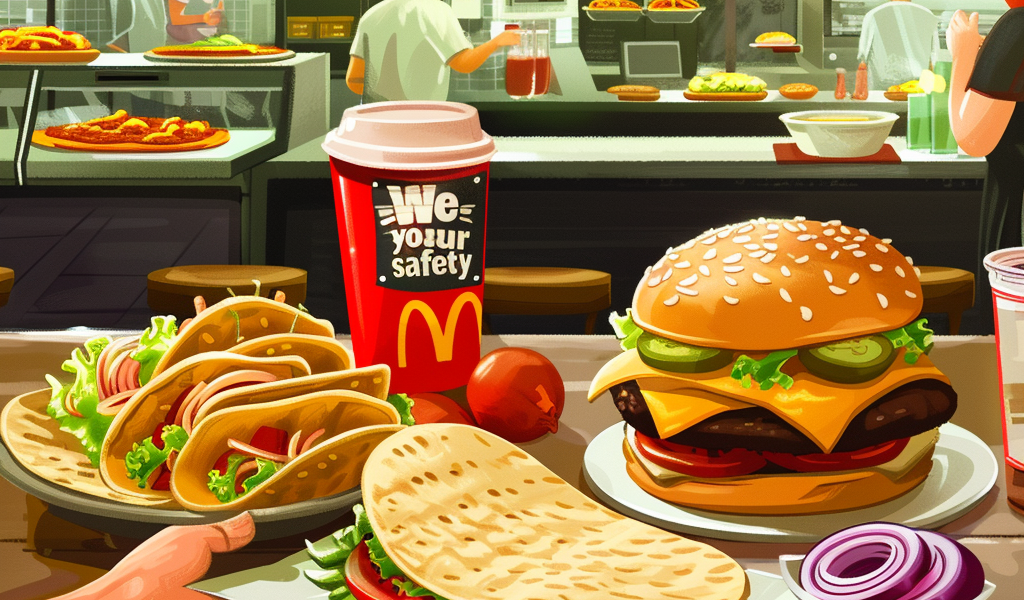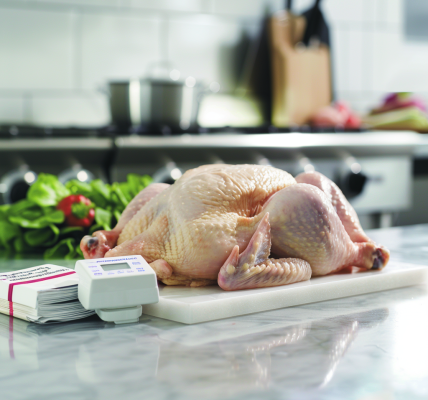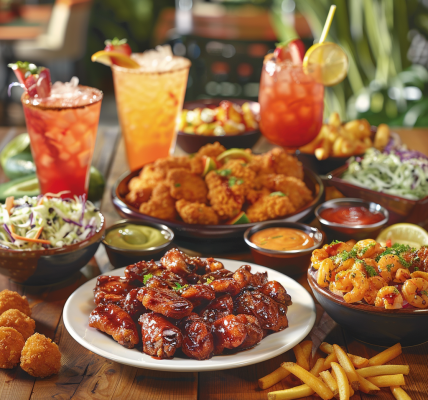In a significant move to ensure food safety, Yum Brands and Burger King have taken the precautionary step of removing onions from their menus in various locations across the United States. This decision comes in the wake of an alarming outbreak of E. coli illnesses linked to McDonald’s Quarter Pounders, which have been identified as a potential source of contamination.
As of the latest reports from the Centers for Disease Control and Prevention (CDC), a total of 75 E. coli cases have been associated with McDonald’s, with the majority of these illnesses stemming from the consumption of their signature Quarter Pounder sandwiches. These sandwiches contain uncooked sliced onions, which are known to harbor the E. coli bacteria if not cooked properly. Cooking onions to a temperature of 160 degrees Fahrenheit is generally effective in eliminating E. coli.
The E. coli outbreak has affected individuals across 13 states, prompting a rapid response from major fast-food chains. Yum Brands, the parent company of Taco Bell, KFC, and Pizza Hut, has confirmed that some of its locations are no longer serving fresh onions as a precautionary measure. A spokesperson for the company stated, “As we continue to monitor the recently reported E. coli outbreak, and out of an abundance of caution, we have proactively removed fresh onions from select Taco Bell, Pizza Hut, and KFC restaurants. We will continue following supplier and regulatory guidance to ensure the ongoing safety and quality of our food.” This statement highlights the company’s commitment to public health and safety.
In addition to Yum Brands, Burger King has also reported that approximately 5% of its locations have opted to eliminate onions from their menu offerings temporarily. This decision reflects a proactive approach to food safety amid growing concerns over the outbreak. A check on Taco Bell’s official website indicates that onions are unavailable in certain states where E. coli cases have been reported, further emphasizing the chain’s commitment to consumer safety.
The situation escalated earlier this week when Taylor Farms, a prominent supplier of onions, initiated a recall of yellow onions due to potential contamination. Businesses that received these recalled onions have been advised to destroy any remaining stock to prevent further spread of the bacteria. This recall is part of a broader effort to contain the outbreak and protect public health.
The CDC has been actively investigating the outbreak, conducting interviews with individuals who have fallen ill. Out of 42 respondents, all reported having dined at McDonald’s, with the majority indicating that they had consumed a Quarter Pounder. This data underscores the link between the E. coli cases and the specific menu item, prompting heightened scrutiny of the food supply chain.
As the situation develops, health officials continue to monitor the outbreak closely, providing updates and guidance to consumers and businesses alike. The proactive measures taken by Yum Brands and Burger King serve as a reminder of the importance of food safety in the fast-food industry, especially in light of recent events.
Consumers are encouraged to stay informed about food safety recalls and outbreaks, as well as to report any symptoms of foodborne illness to their healthcare providers. The CDC and local health departments are working diligently to trace the source of the outbreak and prevent further illnesses.
As fast-food chains navigate this challenging situation, the focus remains on ensuring the health and safety of customers while maintaining transparency and accountability in their operations. The collaboration between health authorities and food industry leaders is crucial in addressing public health concerns and restoring consumer confidence in the food supply.





